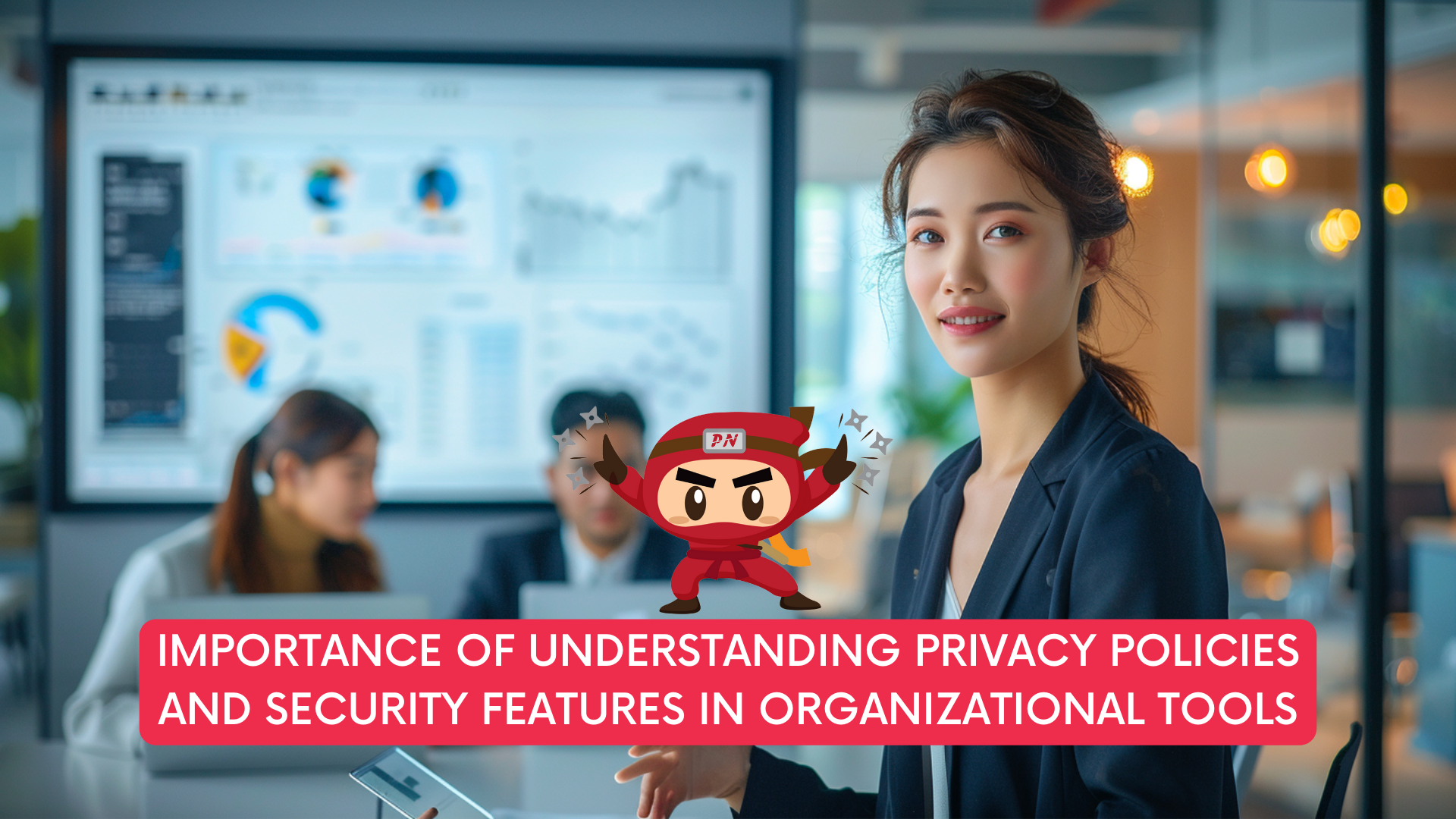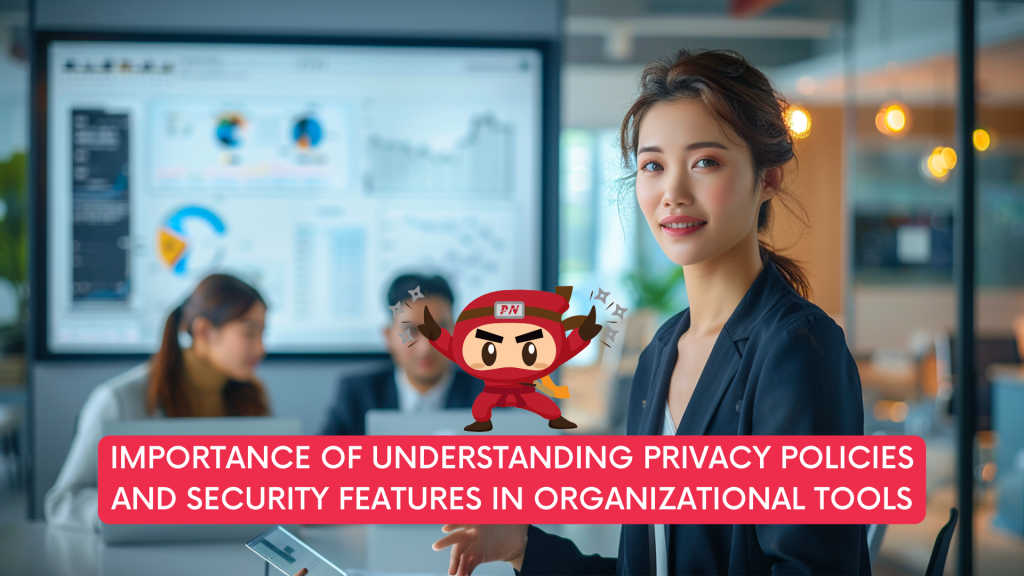KEEP IN TOUCH
Subscribe to our mailing list to get free tips on Data Protection and Cybersecurity updates weekly!







In today’s digital age, where the reliance on online tools and software is ubiquitous, organizations must prioritize understanding the privacy policies and security features of the tools they employ. This imperative stems from the need to safeguard sensitive data and mitigate risks associated with potential breaches or mishandling of information.
By comprehensively understanding these policies and features, businesses can ensure the protection of personal data and uphold regulatory compliance.
Privacy policies serve as a foundational document outlining how an organization handles personal data collected from users or customers. They detail the types of data collected, the purposes for which it is used, and the measures in place to protect it. For organizations, it is essential to thoroughly review and understand these policies before adopting any online tool or software.
A critical aspect of privacy policies is transparency. They should clearly articulate the data collection practices employed by the tool or software provider, including any third-party involvement. This transparency enables organizations to assess the potential risks associated with sharing sensitive information and make informed decisions regarding data usage.
Furthermore, understanding privacy policies empowers organizations to uphold user trust. By ensuring compliance with established privacy standards and clearly communicating data handling practices to stakeholders, businesses can foster a sense of transparency and accountability. This trust is invaluable in maintaining positive relationships with customers and stakeholders.

In addition to understanding privacy policies, organizations must evaluate the security features of online tools and software to protect against data breaches and cyber threats. Security features encompass a range of measures designed to safeguard data integrity, confidentiality, and availability. These may include encryption protocols, access controls, authentication mechanisms, and regular security updates.
Encryption plays a pivotal role in securing data transmitted and stored within online tools and software. By encrypting sensitive information, organizations can prevent unauthorized access and mitigate the impact of potential breaches. Moreover, encryption reinforces data integrity by ensuring that information remains unaltered during transmission or storage.
Access controls and authentication mechanisms further bolster data security by limiting access to authorized personnel. Implementing robust access control measures helps prevent unauthorized individuals from accessing sensitive data, reducing the risk of insider threats and unauthorized disclosure. Additionally, multifactor authentication adds an extra layer of security by requiring multiple forms of verification to access sensitive information.
Regular security updates are essential to addressing emerging threats and vulnerabilities in online tools and software. Software providers often release patches and updates to address known security flaws and enhance system resilience. By promptly applying these updates, organizations can fortify their defenses against evolving cyber threats and ensure the continued protection of sensitive data.
One of the paramount considerations for organizations is ensuring compliance with regulatory standards governing data privacy and security. In the context of privacy policies and security features, compliance with regulations such as the Personal Data Protection Act (PDPA) is of utmost importance.
The PDPA, enacted to regulate the processing of personal data in various sectors, imposes obligations on organizations to protect the privacy of individuals’ personal information. It outlines principles for the collection, use, disclosure, and retention of personal data, emphasizing the importance of obtaining consent and implementing appropriate security measures.
By aligning with regulatory standards like the PDPA, organizations demonstrate a commitment to respecting individuals’ privacy rights and safeguarding their personal data. Compliance not only mitigates the risk of legal repercussions but also enhances organizational credibility and trustworthiness in the eyes of consumers and regulatory authorities.
Organizations must prioritize understanding the privacy policies and security features of online tools and software to safeguard personal data and mitigate risks. By comprehensively assessing these aspects, businesses can make informed decisions, uphold user trust, and ensure compliance with regulatory standards like the PDPA. In an era marked by increasing digitalization and data-driven practices, prioritizing data protection is paramount for organizational success and reputation preservation.
Your appointed DPO can work with you on your PDPA compliance, ensuring that there will be policies in place to make sure that the handling of personal data is PDPA compliant.
A Data Protection Officer (DPO) oversees data protection responsibilities and ensures that organisations comply with the Personal Data Protection Act (PDPA). Furthermore, every Organisation’s DPO should be able to curb any instances of PDPA noncompliance as it is the officer responsible for maintaining the positive posture of an organisation’s cybersecurity.
DPOs complement organisations’ efforts to ensure that the organisation’s methods of collecting personal data comply with the PDPA. It also ensures that policies are set in place to make sure that there will be no instances of data breaches in the future.
Don’t wait any longer to ensure your organisation is PDPA compliant. Take our free 3-minute PDPA Compliance Self-audit checklist now, the same “secret weapon” used by our clients to keep them on track. Upon completion, we will send you the results so you can take the necessary action to protect your customers’ data. Complete the free assessment checklist today and take the first step towards protecting your customers’ personal data.